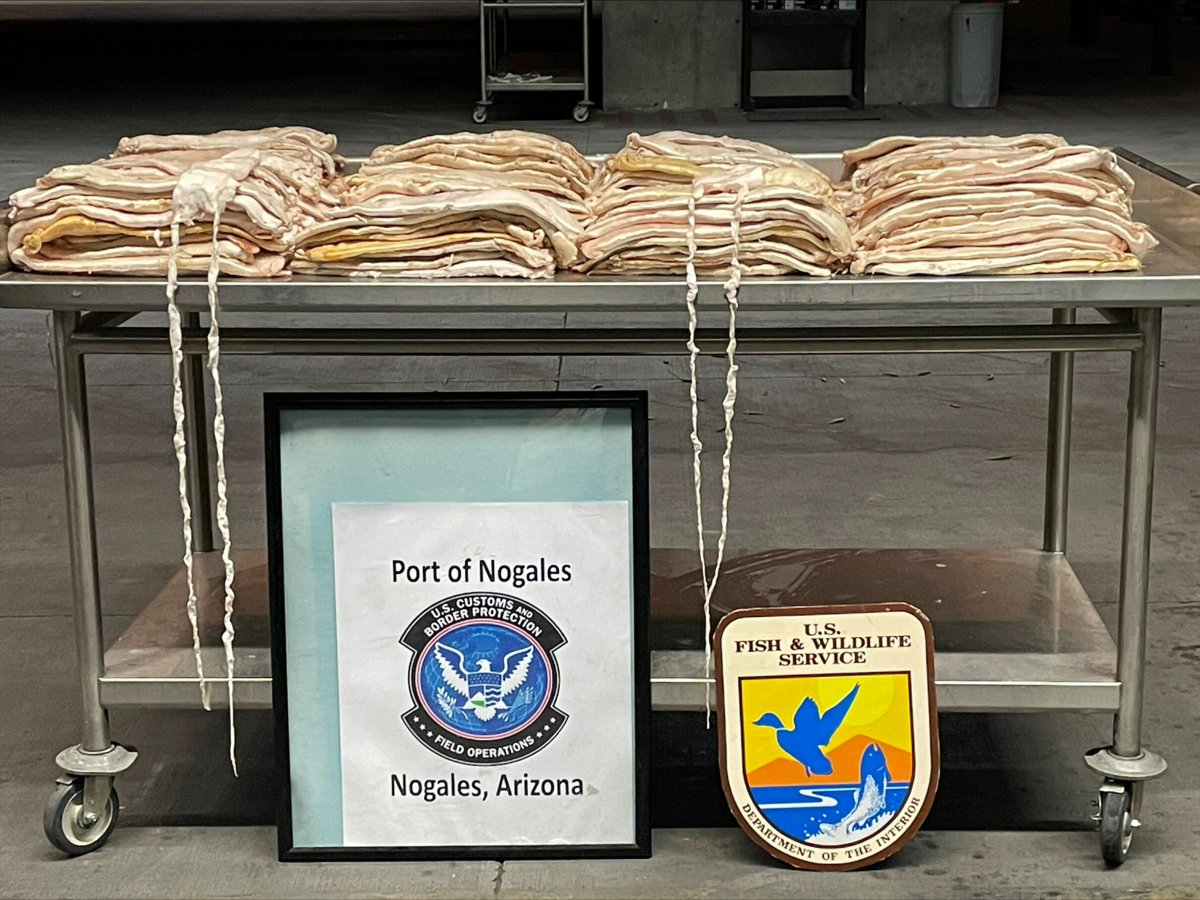U.S. Customs and Border Protection officers at the Port of Nogales netted a near-record breaking haul of endangered fish organs, according to a news release.
The agency intercepted a staggering 242 pounds of Totoaba swim bladders, estimated to be worth $2.7 million, it said Monday, June 12. The seizure is the second largest of its kind in the United States and the largest Totoaba seizure in Arizona to date.
Totoaba fish are protected by the Convention on International Trade in Endangered Species of Wild Fauna and Flora and Endangered Species Act. Their bladders are highly sought after in traditional Chinese medicine and are considered a delicacy in some Asian cultures.
The discovery took place in April when CBP officers detected 270 Totoaba swim bladders hidden within a commercial shipment of frozen fish fillets.
Officers alerted the U.S. Fish and Wildlife Service, which took the seized bladders for further examination.
Preliminary DNA testing confirmed that the confiscated bladders belong to the Totoaba macdonaldi species, which is native to the Gulf of California in Mexico.
This illegal trade in Totoaba swim bladders has had devastating consequences for the Gulf of California’s biodiversity, the news release said. The fishing methods used to capture Totoaba, primarily gill-net fishing, have resulted in the decline of another endangered species in the region, the Vaquita porpoise.
Homeland Security Investigations and the USFWS are investigating the attempted smuggling of the bladders.
Get your morning recap of today's local news and read the full stories here: http://tucne.ws/morning





